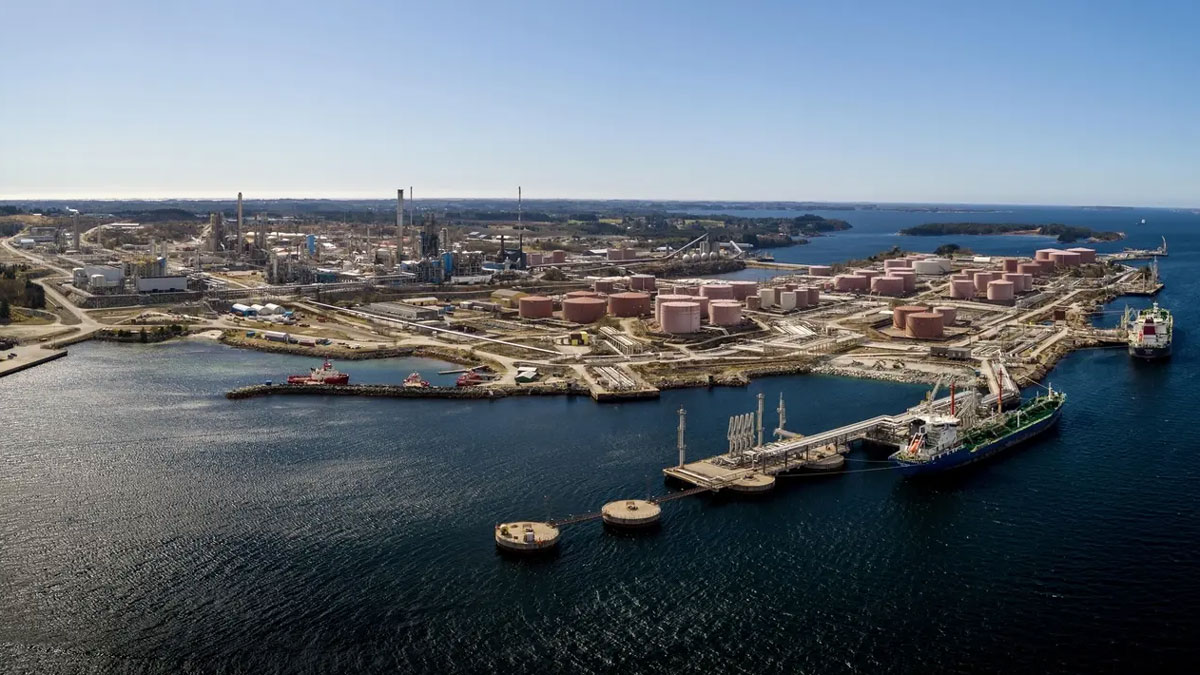Equinor has awarded new framework agreements for insulation, scaffolding, and surface treatment (ISS) at its onshore plants in Norway.
The agreements have been signed with the joint venture Beerenberg Services AS/Linjebygg AS, KAEFER Energy AS, Bilfinger ISP Offshore Norway AS, and StS-ISONOR AS. Together, they represent more than a thousand full-time equivalents and have a duration of up to eight years – four years firm, with options for two additional two-year extensions. The estimated value of the agreements is around NOK 17 billion.
Predictability and continuity
The current agreements expire at the end of the year, and the new ones will formally take effect on 1 January 2026, with a gradual transition between existing and new suppliers. This ensures operational continuity and gives suppliers time to plan resource use and staffing in a safe and efficient manner.
Equinor has presented its overall ISS strategy to the industry organization for ISS companies in Norsk Industri – KIS (Corrosion, Insulation, and Scaffolding Contractors) and received feedback that has been important in further developing the strategy and the new agreements.
“As contract periods near their end, Equinor conducts evaluations to gather lessons learned and identify improvements before awarding new contracts. These agreements build on two years of targeted work to improve safety, collaboration, and delivery in close cooperation with the industry. We have listened to the industry and built a contract model that gives both Equinor and the suppliers better control and more stable frameworks. This allows for development, investment, competence building, and the use of new technology and methods,” says Mette Ottøy, Chief Procurement Officer at Equinor.
Local ripple effects
The onshore plants process and refine crude oil and natural gas into petroleum and chemical products that are shipped onward and contribute to Europe’s energy supply – both via pipelines and ships.
“ISS services are essential for safe and efficient operations at the plants. These agreements provide predictability and security for a large number of skilled workers and lay the foundation for long-term jobs along the coast from Stavanger to Hammerfest,” adds Christina D. Dreetz, Director of Onshore Plants.
The agreements cover all of Equinor’s onshore plants in Norway: Kårstø, Mongstad, Sture, Kollsnes, Tjeldbergodden, and Hammerfest LNG. The suppliers commit to local presence, which creates positive ripple effects for local communities and businesses.
Onshore plant – supplier overview
Hammerfest LNG: KAEFER Kårstø: Bilfinger Mongstad: Joint Venture Beerenberg/Linjebygg (Altrad) Tjeldbergodden: Joint Venture Beerenberg/Linjebygg (Altrad) Øygarden (Sture & Kollsnes): StS-ISONOR (New) Onshore plants
Onshore plants
Equinor operates six onshore plants for landing and industrial processing of oil and gas: Hammerfest LNG, Tjeldbergodden, Mongstad, Sture, Kollsnes, and Kårstø. Equinor is the operator for the first four, while Gassco is the operator for Kollsnes and Kårstø, with Equinor as the technical service provider. The onshore plants play a key role in value creation in Norway. Here, crude oil and natural gas are purified, processed, and refined into petroleum and chemical products. The products developed at the plants are traded globally and transported both via pipelines and ships. Construction and civil engineering services are central to the onshore plants, especially for maintenance, groundwork, and new constructions. Employment related to the onshore plants is significant: Figures from the Ripple Effects Report by Kunnskapsparken in Bodø (KPB) for 2024 show a total of 10,272 full-time equivalents, distributed as follows: 2,261 at Equinor, 3,291 at Norwegian supplier companies with direct deliveries, and 4,719 at subcontractors and as consumption effects. Of these, 1,848 full-time equivalents are linked to consumption effects, i.e., ripple effects in other industries. The onshore plants purchased goods and services worth NOK 12.9 billion in 2024. A full 87 percent of this, equivalent to NOK 11.3 billion, was delivered by Norwegian companies.
